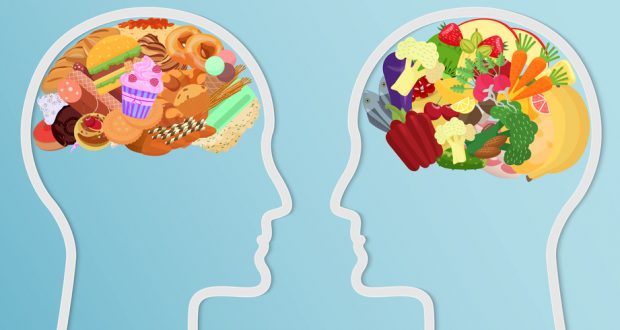Did you know your brain plays a large role in controlling your diet? It’s true!
Everyone has a certain weight and level of body fat that the brain deems “comfortable” in order to keep the body safe and protected from the surrounding environment. Ideal from a self-preservation standpoint, but this brain regulation can make weight loss difficult. If you deviate too far from this comfort weight, the brain will take action to bring the body back.
When the body experiences weight loss, the amount of leptin (a “hunger hormone”) in your bloodstream drops. This decrease in leptin signals your brain that you need to eat in order to bring back the “protection” of the weight you lost. If your brain has different comfort weight in mind than you do, you will have a harder time losing weight.
All is not lost, however. There is a bit of good “brain news” to share when it comes to making changes to your diet. A new study found that individuals with more gray matter in the prefrontal cortex area of the brain are more likely to make healthier food choices. If the study participants focused more on the “healthiness” of a food item rather than the “tastiness” of said food item, they were designated as having stronger self-control.
Those with the strongest self-control when it came to food choices had more gray matter in the prefrontal cortex versus participants who made selections based upon how foods would taste. Imagine, the gray matter in your brain could make you more (or less) likely to reach for carrots over cookies!
Now, don’t make excuses based on the brain’s tendency to keep weight on, nor the amount of gray matter in your prefrontal cortex. Your health journey is yours to manage – you are in control! There are several things you can do to take charge and steer yourself in the right direction.
Start by talking with your healthcare team about your current weight, and what your physician recommends to be your “healthy weight.” Together, develop a plan of action that includes food choices, physical activity, health check-ups, etc.
Be sure to check your blood sugar regularly, and track your levels. This can help you find patterns of when your sugar tends to rise (and drop) and can help you identify foods that are spiking your sugar.
There are several specific ways you can make better food choices. Try cooking more meals at home. Experiment with foods you may not have tried before. Let your kids or grandkids try new foods, and cooking techniques alongside you. Eating healthier can be a fun and positive way to bring the family together!
When grocery shopping, make a list and stick to it. Shop from the list and do not pick something off of the shelf simply because it looks good and you want it in that moment. Keep to the perimeter of the store – meats, seafood, dairy, and produce. The whole, clean foods you are looking for will not be found down the aisles. The boxed and packaged foods in the middle of the store contain all manner of less-than-desirable ingredients (including sugar.)
Avoid fast food. These foods are highly processed, and often contain far too many calories, fat, and sodium. These foods also tend to have little to no nutritional value, vitamins, minerals, or fiber.
Don’t stop with just your food choices. Consistent physical activity, quality sleep, and stress management are also critical in managing your complete health. If you are not being active, are exhausted, or stressed, food choices alone won’t give you the results you’re looking for.
While the brain can have a significant impact on the success of the conventional “diet”, ultimately, your health comes down to you! After all, the way to lose weight and manage health long-term is not through “dieting” but through a commitment to an overall healthier lifestyle.
Sources:
https://www.livescience.com/62744-gray-matter-brain-predict-diet-success.html
 Diabetic Kitchen
Diabetic Kitchen





Recent Comments